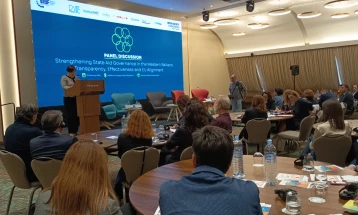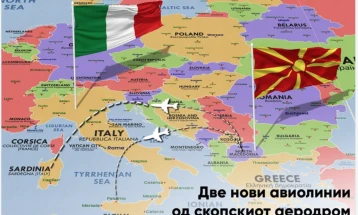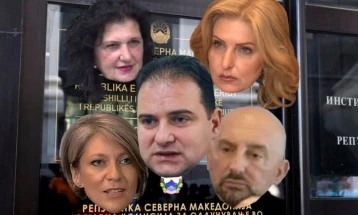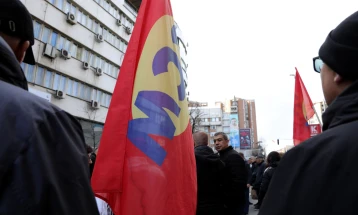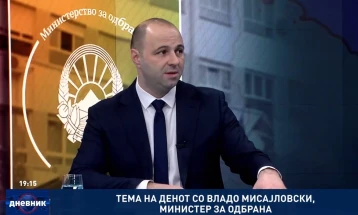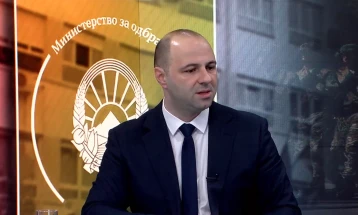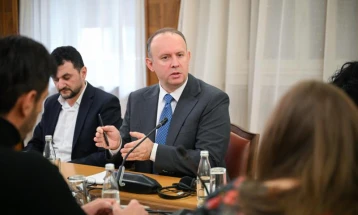Osmani: Different historical interpretations mustn’t be considered hate speech
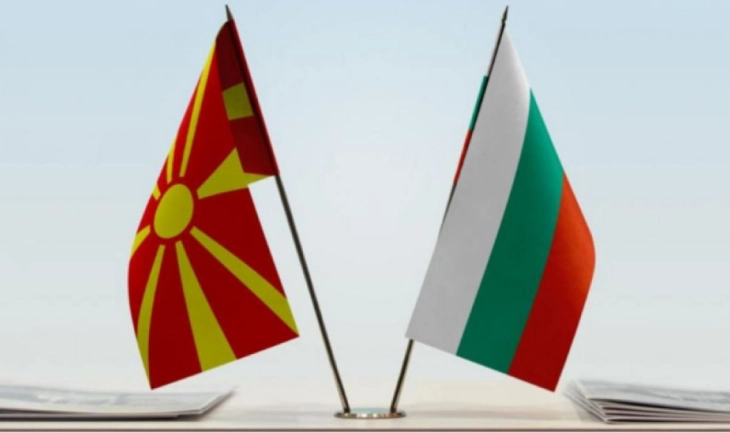
Skopje, 26 July 2022 (MIA) – We mustn’t consider the different historical interpretations as hate speech. Our legislation clearly states that hate speech refers to belittling someone because of certain attributes or belonging to a certain group. And I believe by expanding that to include historical interpretations we are opening a field for exactly the kind of risks which we talk about, that hate speech will be interpreted as part of the work of the history commission, said Minister of Foreign Affairs Bujar Osmani in response to a reporter's question.
“Hate speech is not connected with the work of the history commission, but dealing with it is a way for the governments to create opportunities for better relations between the citizens, the businesses of the two countries. Obviously, we have entered a negative trend in relations where we seek harsher words for each other, offending the citizens and even the countries from both sides. We have to put an end to this trend if we want to be friends and allies within the EU. We have no interest in having a negative relationship trend and rhetoric with Bulgaria,” said Osmani.
According to him, the protocol and the agreement were signed in good will and that is the aspect from which we should view the part on monitoring hate speech.
“Hate speech will also be monitored in Bulgaria. You know there was a case after the bus crash, where a Bulgarian citizen insulted the victims online, the Bulgarian Government reacted immediately and arrested the citizen. So, we are talking about dealing with that kind of hate speech, in order to end the toxic loop in our relations and to open a new chapter of friendship,” said Osmani.
When asked whether he had met with the Macedonian members of the history commission, Osmani said he met with them when the Protocol was being agreed, and their remarks were included in the final phase of the protocol.
“In the upcoming days I plan on meeting the entire commission, starting tomorrow and we will talk about the steps ahead” said Osmani.
Regarding VMRO-DPMNE’s call of a possible referendum, Osmani said he sees no point in a referendum being organized.
“Unless the referendum question is ‘are you in favor or against the EU with Macedonian as its official language’, I don’t see any other reason for a referendum, because all questions that are important for us have been secured with this agreement. The language is clear, the historical questions aren’t conditions for opening and closing of chapters and we have a beginning of negotiations. The only logical question of that referendum would be ‘Do you support ending North Macedonia’s European path, therefore threatening the Macedonian language’s status in the EU?’ I really don’t see another reason for a referendum,” said Osmani.
On whether the results of a possible referendum would be respected, Osmani said that is defined by the Constitution and the legislation.
“This is not a question which I should answer with a yes or no, whatever the Constitution and the legislation say, is what will be done. But I really think that they should explain the reasoning for the question. It means you either ask do you support a Eurasian Union or are you against the EU and against the Macedonian language in the EU. I can’t see another reason for a referendum. And if there is such a reason for a referendum, then that is a completely different debate where everyone should sit down and explain their position. Whether someone wants to stop the accession process, whether someone wants some new alternative, that is legitimate, let them pose this question, the citizens will express their position. I don’t see another reason for a referendum.” said Osmani. ad/ba/
